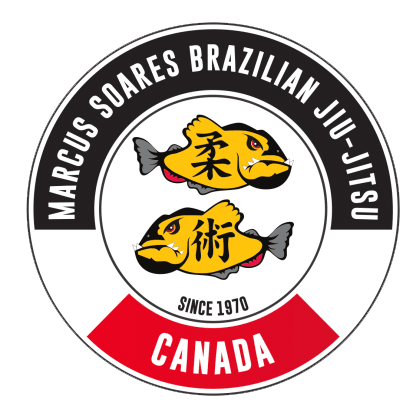Brazilian Jiu-Jitsu (BJJ) has long been considered a highly effective and practical martial art for self-defence, emphasizing control, leverage, and adaptability. As a result, BJJ has become increasingly popular among law enforcement officers seeking to enhance their tactical skills, increase situational awareness, and prioritize safety. By integrating BJJ training into their physical fitness regimen, officers can better prepare themselves for the unpredictable nature of their profession, as well as build mental resilience and confidence necessary for high-stress situations.
Join us as we unveil the benefits of BJJ for law enforcement officers, illustrating how this dynamic and practical martial art can complement existing tactical training and provide valuable tools for officer safety, effective suspect control, and overall preparedness in the line of duty.
Enhancing Officer Safety through Brazilian Jiu-Jitsu Techniques
1. Control and Leverage: BJJ principles place a strong emphasis on establishing control and using leverage to overcome physically stronger and larger opponents, which can be beneficial to officers during physical confrontations.
2. Non-Aggressive Techniques: Brazilian Jiu-Jitsu incorporates a variety of non-striking and non-aggressive techniques that can efficiently manage situations while minimizing the risk of injury to both officers and suspects.
3. Ground Fighting Proficiency: Since many physical altercations can end up on the ground, BJJ equips officers with essential ground fighting skills, enhancing their safety and effectiveness in the line of duty.
4. Preventing and Escaping Holds: BJJ training develops officers’ ability to prevent an assailant from establishing control during a confrontation and escape from various holds or submission attempts effectively.
Developing Tactical Skills through BJJ Training
1. Situational Awareness: BJJ training sharpens officers’ situational awareness and encourages them to maintain constant vigilance during confrontations, enabling decisive and appropriate action.
2. Body Mechanics and Balance: Brazilian Jiu-Jitsu emphasizes the importance of understanding body mechanics, enabling officers to use their body efficiently, maintain balance, and exploit their opponents’ weaknesses.
3. Maintaining a Calm Mindset: BJJ training helps officers develop a calm and focused mindset during high-stress situations, ensuring clear decision-making and minimizing risk to the officer and the public.
4. Effective Communication under Pressure: BJJ’s focus on problem-solving and adaptability can foster officers’ ability to communicate effectively under pressure, improving team coordination during high-stress situations.
Tailoring BJJ Training to Meet the Unique Needs of Law Enforcement
1. Specialized Programs: Customized BJJ training programs for law enforcement account for the unique needs, goals, and challenges faced by officers, ensuring the curriculum is relevant, efficient, and practical.
2. Instructors with Law Enforcement Experience: Learning from experienced BJJ instructors who also have a background in law enforcement ensures that the content of the training is tailored to officers’ needs and real-world applications.
3. The Integration of Tactical Equipment and Weapons in Training: Incorporating tactical gear and non-lethal training weapons in BJJ training helps develop familiarity and comfort with the equipment in high-stress situations, increasing overall officer preparedness.
4. Flexible Training Schedules: Law enforcement BJJ programs often offer flexible training schedules to adapt to the demands of police shift work and other commitments, ensuring consistent and convenient lessons for officers.
Building a Supportive Community among Law Enforcement BJJ Practitioners
1. Team Building and Camaraderie: BJJ training among law enforcement members fosters a sense of camaraderie and promotes teamwork, boosting morale and creating lasting professional bonds.
2. Sharing Experiences and Strategies: Officers who train BJJ together can share real-world experiences and collaboratively develop tactics, benefiting both the individual and the collective.
3. Encouraging Mental Vigor: BJJ training promotes mental resilience, helping officers overcome the mental and emotional challenges that come with police work and develop healthy coping mechanisms.
4. Networking and Professional Development: Participating in a law enforcement-focused BJJ program provides an opportunity for officers to network and learn from peers in other departments, further developing their professional skills.
Addressing Ethical and Legal Considerations in Law Enforcement BJJ Training
1. Use of Force Guidelines: BJJ training for law enforcement emphasizes adherence to departmental use of force policies and legal standards, ensuring that officers apply techniques within ethical and legal boundaries.
2. De-escalation Strategies: Integrating de-escalation techniques alongside BJJ training equips officers with a comprehensive approach to managing conflicts, prioritizing peaceful resolutions whenever possible.
3. Duty to Protect: BJJ training underscores officers’ duty to protect both themselves and the public, emphasizing the importance of using proportional force and minimizing harm during encounters.
4. Accountability and Oversight: Law enforcement BJJ programs incorporate mechanisms for accountability and oversight to ensure that officers uphold professional standards and responsibly apply their training in the field.
Fostering Diversity and Inclusion in Law Enforcement BJJ Communities
1. Accessibility Initiatives: Law enforcement BJJ programs actively promote accessibility and inclusivity, welcoming officers from diverse backgrounds and skill levels to participate and benefit from training.
2. Cultural Competence Training: Incorporating cultural competence training alongside BJJ instruction helps officers better understand and serve diverse communities, fostering trust and collaboration.
3. Women in Law Enforcement BJJ: Specialized initiatives encourage the participation and advancement of women officers in BJJ training, creating a supportive environment and addressing unique challenges they may face.
4. LGBTQ+ Inclusivity: Law enforcement BJJ communities prioritize LGBTQ+ inclusivity, offering safe and welcoming spaces for officers of all sexual orientations and gender identities to train and connect.
Conclusion
Incorporating Brazilian Jiu-Jitsu training into law enforcement offers a myriad of benefits, including enhanced officer safety, increased tactical skills, and an improved capacity to control potentially dangerous situations with minimal force. Through specialized programs designed with law enforcement officers’ unique needs in mind, BJJ training becomes a valuable and practical addition to traditional police training.
Experience the transformative power of Brazilian Jiu-Jitsu for law enforcement at Marcus Soares Brazilian Jiu-Jitsu. Our experienced instructors and tailored programs provide an ideal environment for officers to develop the physical and mental skills necessary for confronting the challenges of their profession. Discover BJJ for adults in Vancouver, and elevate your tactical and self-defence capabilities!

